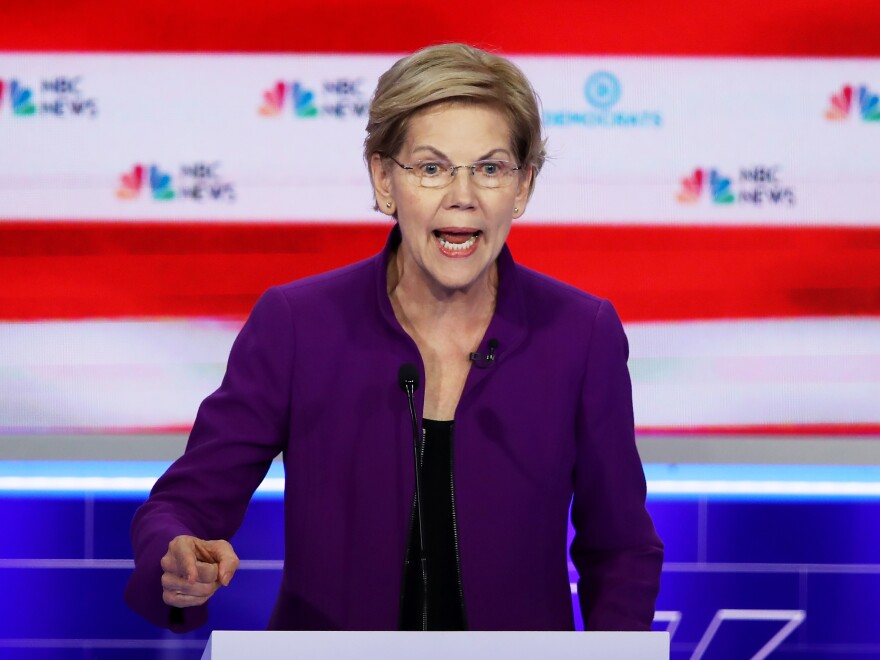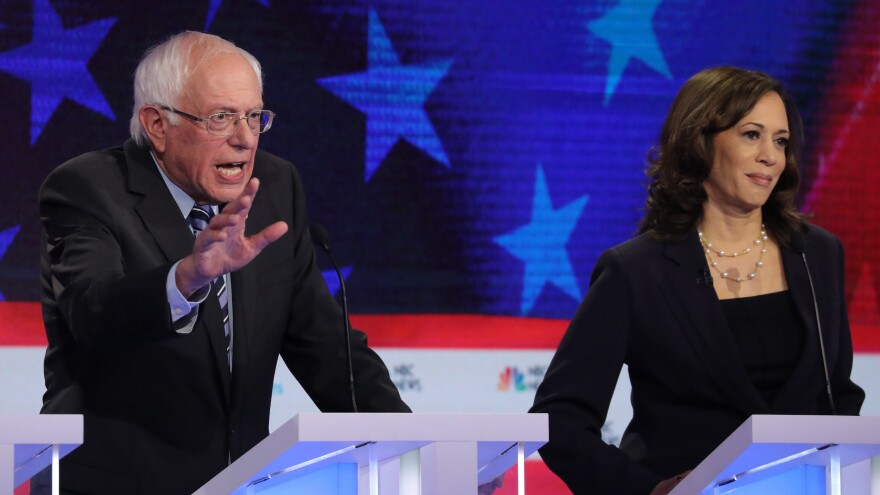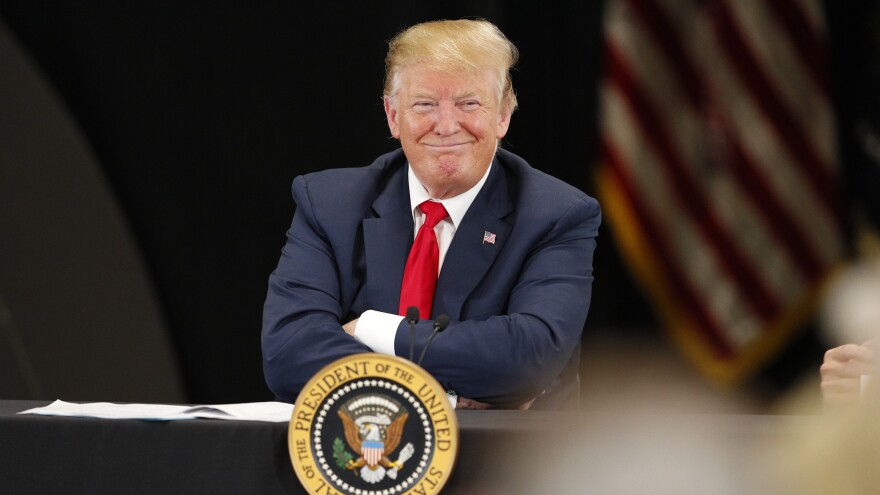At the Democratic presidential debate this week, voters got a preview of how Democrats will handle what for now is an uphill battle against President Trump.
That challenging hill is the economy, because it's doing well right now, at least by the headline numbers. Unemployment is at 3.6 percent, the lowest it's been in about 50 years, and growth is still moving at a good clip. Consumer confidence is generally high (despite a recent slip).
On top of that, one key point: despite Trump's approval rating being stuck in the mid-40s, he tends to do better on the economy.
All that could make Trump's path to another term much easier. So Democrats are trying to thread a tricky needle: telling voters that while the economy is doing well, it is doing disproportionately well for the rich. In other words: the current good economy should be benefiting all of you more.
The economy is doing okay... so what to improve?
There's evidence that the economy particularly bears on voters' choices. Yale economist Ray Fair has a relatively well-known model for predicting the popular vote based on economic indicators. His latest prediction, as of April: that the Democratic nominee will get 45 percent of the popular vote.
All of which is to say that if the economy is still doing well next year, Democrats may have to figure out how to tell people how things could be even better.
That's where the "the economy isn't working for everyone" idea comes in.
It's an idea that got a lot of play during the two debates. It's of course been at the core of Vermont Sen. Bernie Sanders' stump speech for years. It's a huge part of Massachusetts Sen. Elizabeth Warren's campaign message, which she brought out on Wednesday night: "I think of it this way: Who is this economy really working for? It's doing great for a thinner and thinner slice at the top."

California Sen. Kamala Harris echoed this sentiment: "This president walks around talking about and flouting his great economy, right? My great economy. My great economy. You ask him, well, how are you measuring this greatness of this economy of yours and he talks about the stock market. Well, that's fine if you own stocks. So many families in America do not."
And that's just two candidates. A range of others this week — Minnesota Sen. Amy Klobuchar, former Texas Rep. Beto O'Rourke, entrepreneur Andrew Yang, to name several — made similar arguments.
One challenge they face is connecting with voters on this idea — that the economy is fundamentally broken and in need of structural change. One political problem with that argument is that it doesn't have a distinct villain — just the "1 percent" of richest Americans or corporations.
Thus far, the candidates seem to have found two ways to address that problem, and one is the Trump tax cuts.
Harris took aim at these at the debate, stressing that the Republican tax bill "benefits the top 1 percent and the biggest corporations in America." New York Sen. Kirsten Gillibrand and Sanders likewise made similar arguments.
It's a line of attack that seizes on a concrete policy that — at least, as of tax day 2019 — was broadly unpopular. So it's easy to see this being a key line of attack for a Democratic nominee in 2020.
Once again, though, it's easy to see how the argument that the rich are doing too well might not move voters who themselves feel more or less fine about the economy.
Another line of attack Democrats took in the debates was to connect the economy to particular topic areas, like health care. When it comes to their personal finances, Americans list health care costs as their top concern, according to Gallup.
It's perhaps no coincidence, then, that multiple times, when candidates brought up the economy, they tied it to that issue. Especially given that health care was key to Democratic victories in 2018, this could be a particularly attractive tactic for a Democratic nominee.

The potential hurdles for Trump
Whether or not it affects people's votes, candidates aren't wrong when they say Americans are not sharing equally in a strong economy.
One 2017 study showed what many Americans might already intuit: that economic growth just doesn't benefit lower and middle-class Americans the way it used to.
Another way to get at this: The labor share of GDP — the share of economic output that goes to workers in their paychecks (or benefits) — has fallen precipitously in recent decades.
So Democrats have good data they can point to. If a nominee can somehow connect to voters on an emotional level on that idea, it's possible they could win some over.
In addition, despite a generally strong economy, Trump faces a couple of other challenges: One is that his approval (as we said earlier) is still pretty low — and he has only experienced a good economy as president. He could take a hit if the economy tanks.
And the economy very well could turn bad before Election Day 2020. A recent survey from a panel of business economists found a jump in recession fears for 2020 — right now, those economists say there's a 60 percent chance of a recession by the end of next year.
In the next year and a half, then, a Democratic message on the economy could change dramatically. But for now, Democrats must wrestle with the tough question of how to sell a new economic message when things look relatively okay.
Copyright 2021 NPR. To see more, visit https://www.npr.org.



